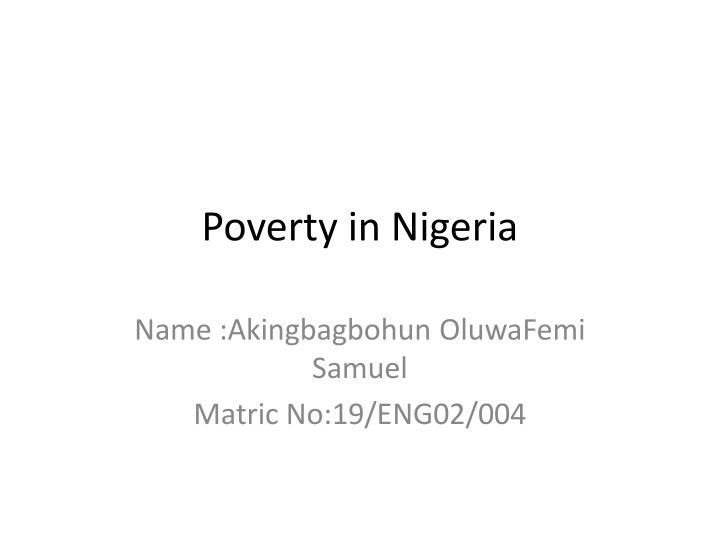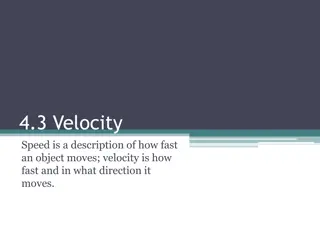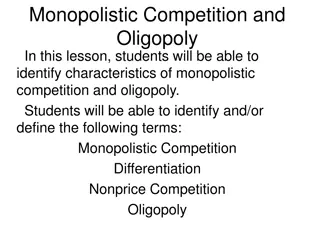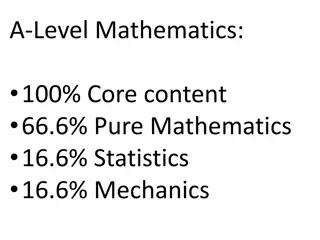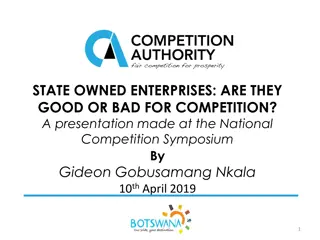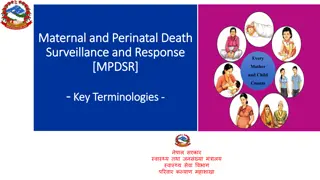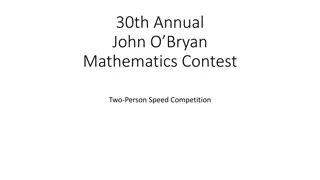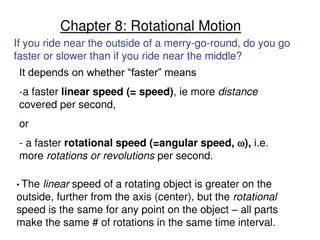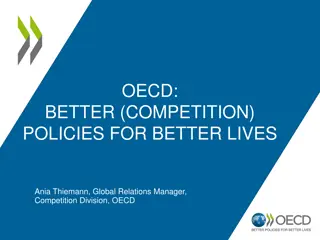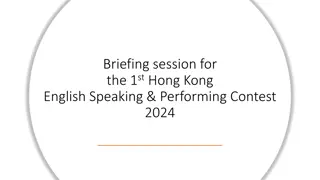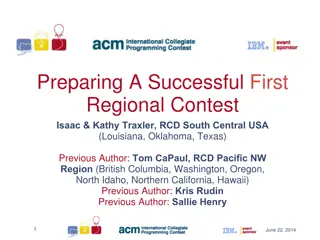30th Annual John O. Bryan Mathematics Contest - Speed Competition
Join the intense two-person speed competition at the 30th Annual John O. Bryan Mathematics Contest. Test your skills with eight challenging questions in a high-pressure environment. No calculators allowed for the first four questions! Score points for correct answers and compete against other math enthusiasts. Get ready for a thrilling mathematical challenge!
Download Presentation

Please find below an Image/Link to download the presentation.
The content on the website is provided AS IS for your information and personal use only. It may not be sold, licensed, or shared on other websites without obtaining consent from the author.If you encounter any issues during the download, it is possible that the publisher has removed the file from their server.
You are allowed to download the files provided on this website for personal or commercial use, subject to the condition that they are used lawfully. All files are the property of their respective owners.
The content on the website is provided AS IS for your information and personal use only. It may not be sold, licensed, or shared on other websites without obtaining consent from the author.
E N D
Presentation Transcript
Poverty in Nigeria Name :Akingbagbohun OluwaFemi Samuel Matric No:19/ENG02/004
Income Inequality As at 2010, the Gini coefficient of Nigeria is rated medium, at 0.43.However, there are more rural poor than urban poor.[This is correlated with differential access to infrastructure and amenities. This results from the composition of Nigeria's economy, especially the energy (oil) and agriculture sectors. Oil exports contribute significantly to government revenues; it contributes 9% to the GDP, and employs only a fraction of the population. Agriculture, however, contributes to about 17% of GDP, and employs about 30% of the population.[ This incongruence is compounded by the fact that oil revenue is poorly distributed among the population, with higher government spending in urban areas than rurally. High unemployment rates renders personal incomes even more divergent. Moreover, the process of oil extraction has resulted in significant pollution, which further harms the agricultural sector. Additionally, agriculture growth as slowed also because of farmer-herdsmen clashes, revolts in the north-east, and floods. The majority of Nigeria s better paying jobs are in capital-intensive sectors, but they are very scarce and limited. Only the places striving with economic activity and are very capital-intensive, possess law firms, small local businesses, and the governing powers.
Long-term ethnic conflict and civil unrest Nigeria has historically experienced much ethnic conflict. With the return to civilian rule in 1999, militants from religious and ethnic groups have become markedly more violent.While this unrest has its roots in poverty and economic competition, its economic and human damages further escalate the problems of poverty (such as increasing the mortality rate). For instance, ethnic unrest and the displeasure to local communities with oil companies has contributed to the conflict over oil trade in the Niger Delta , which threatens the productivity of oil trade. Civil unrest might also have contributed to the adoption of populist policy measures which work in the short-run, but impede poverty alleviation efforts.
Political instability and Corruption Nigeria's large population and historic ethnic instability has led to the adoption of a federal government. The resultant fiscal decentralisation provides Nigeria s state and local governments considerable autonomy, including control over 50% of government revenues, as well as responsibility for providing public services. The lack of a stringent regulatory and monitoring system has allowed for rampant corruption.This has hindered past poverty alleviation efforts to a large extent,since resources which could pay for public goods or directed towards investment (and so create employment and other opportunities for citizens) are being misappropriated.Nigerian corruption and poverty are interrelated and encourages each other. When looking at human development, Nigeria is at the bottom of the scale and corruption scores highest. Its existence is in all levels in the government Local, State and even in the national departments. As a result of extreme corruption, even the poverty reduction programs suffer from no funding and have failed to give the needed remedy to this country. One of the reasons for the continued success of corruption is the encouragement that it receives from the government. Government shows tolerance towards corruption and corrupted official s to the extent that the officials facing indictment are pardoned and accepted into the society. Is there a remedy to eradicate corruption? The answer lies in the hands of Nigeria s federal government. They must get involved more and implant stronger reduction programs and ensure that it is being followed by all the officials and the departments. Just by eradication corruption, Nigeria could come of poverty. Taking care of corruption is taking care of poverty.
